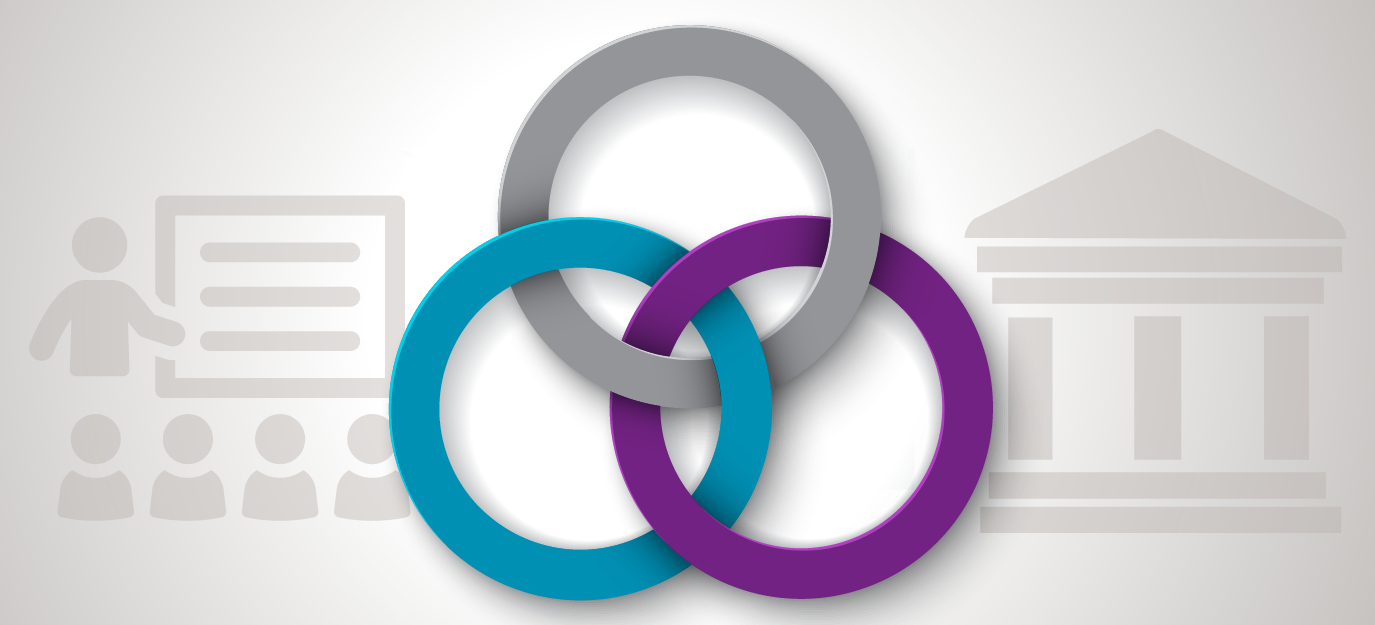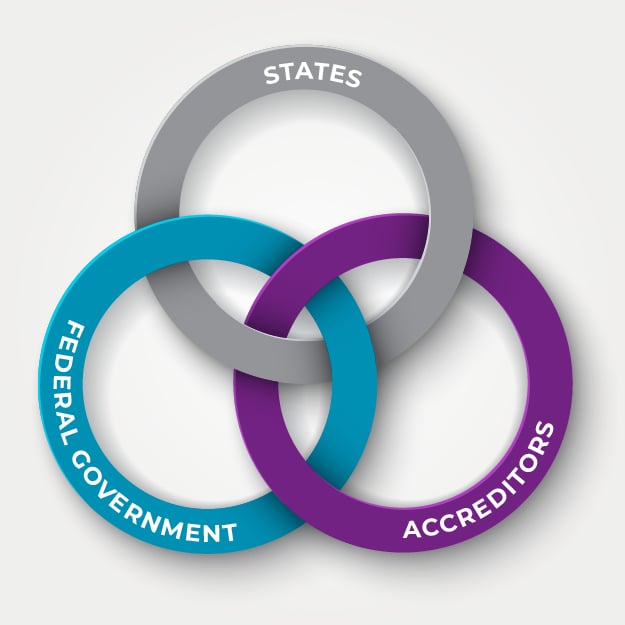
Triad News
Triad News
Fiscal Year 2026 Appropriations

On October 1, the federal government went into a shutdown.
The U.S. House of Representatives passed the Continuing Appropriations and Extensions Act, a short-term Continuing Resolution to fund the government at Fiscal Year (FY) 2025 levels through mid-November, on September 19. The bill has repeatedly failed to garner the requisite 60 votes in the Senate.
In September, HLC joined other higher education associations in sending a letter to U.S. House and Senate leadership regarding FY 2026 appropriations. The letter requests that Congress ensure that all funding allocated in the FY 2026 appropriations process is spent by the administration as intended by Congress.
Institute of Education Sciences (IES) Opportunity to Comment
The Department of Education (ED) is seeking public input on how the Institute of Education Sciences can “modernize its programs, processes, and priorities to better serve the needs of the field and American students.”
The IES is the Department’s research, evaluation, and statistics arm. Per the Department, the IES is “undertaking a comprehensive reexamination to ensure that its core functions… are carried out in ways that maximize relevance, timeliness, and usability for the education stakeholders who rely on them.”
Comments must be received by October 15, 2025 and can be submitted through the Federal eRulemaking Portal at www.regulations.gov.
Federal Funding Updates
In September, ED announced multiple reorganizations of federal funding for higher education.
Among these changes, ED withdrew Notices Inviting Applications (NIAs) and canceled competitions for certain Minority Serving Institutions (MSIs), including Strengthening Alaska Native and Native Hawaiian-Serving Institutions, Strengthening Asian American and Native American Pacific Islander-Serving Institutions, Strengthening Native American-Serving Nontribal Institutions, and Developing Hispanic-Serving Institutions programs.
ED also withdrew NIAs and canceled competitions for the High School Equivalency Program (HEP) and the College Assistance Migrant Program (CAMP).
Further, ED announced that it would direct an additional $495 million to Historically Black Colleges and Universities (HBCUs) and tribal colleges, $60 million to charter schools, and would direct $137 million toward civics education grants.
Highlighted Trends in State Higher Ed Policy
In 2025, 12 states have passed legislation regarding public and policies involving diversity, equity, and inclusion (DEI). Examples of provisions include prohibitions on: using public funds on DEI positions or activities; requiring the use of diversity statements in hiring; considering race, color, ethnicity, or national origin in admissions; and mandating diversity trainings.
The number of states utilizing direct admissions has continued to rise, from one in 2015 to more than 15 in 2025. Alabama and Tennessee launched statewide direct admissions pilot programs this fall, while Illinois, California, and Arkansas passed legislation authorizing the creation of direct admissions programs.
Advocacy Agenda
HLC maintains an Advocacy Agenda that outlines its advocacy priorities related to federal and state regulations and legislation that apply to accreditation and higher education.
HLC’s Relationship Within the Triad
HLC has developed a statement on its Relationship Within the Triad to explain the shared oversight and the interconnected higher education environment in the United States. In particular, HLC notes in its statement that:
“The college or university’s mission is central to HLC’s accreditation and assurance of academic quality. In determining whether institutions meet HLC requirements, HLC considers the institution’s mission. An accredited institution demonstrates how it meets HLC requirements through a mission-reflective lens.
Should any of HLC’s requirements overlap with requirements from other members of the Triad, we work with the other Triad members to identify these situations and limit the burden on the institution.
HLC does not prescribe how a member institution meets HLC’s requirements. If a requirement of another entity of the Triad may appear to limit an institution’s ability to meet HLC’s requirements in a particular manner, an institution has the flexibility within HLC’s requirements to identify other ways to demonstrate it meets HLC’s requirements.”
Questions?
Contact [email protected].
Stay Connected
Subscribe to our email interest list to get news updates from HLC.
